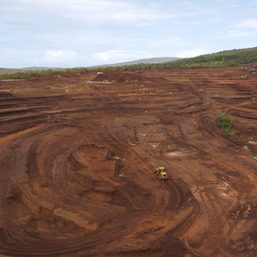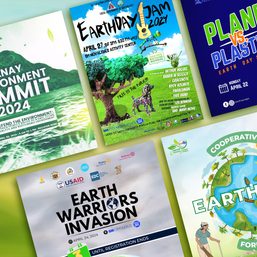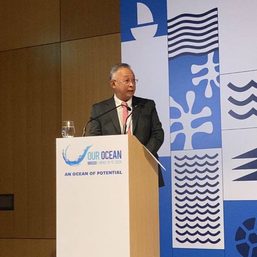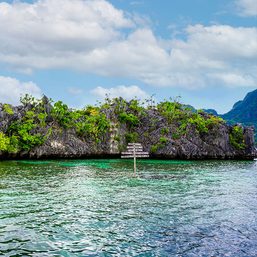SUMMARY
This is AI generated summarization, which may have errors. For context, always refer to the full article.
![[OPINION] A letter to all 20-somethings in 2020](https://www.rappler.com/tachyon/2020/10/dear-20somethings-640.jpg)
Dear 20-somethings,
As we near the end of 2020, we have experienced how climate change is like: more intense and frequent typhoons, floods, wildfires, droughts, heatwaves, and diseases that have impacted the oceans, animals, and people.
On top of this, the current COVID-19 pandemic has greatly exacerbated the vulnerabilities of our institutions and communities. Unfortunately, it is almost certain that the situation will get worse because of climate change’s impact.
It also does not help that, as 20-somethings, we have yet to understand who we are, to find a path that we want. Some would say that we are still navigating through life, learning the ropes of adulthood, and working for a future we want.
Therefore, it is understandable that we may feel confused, and perhaps even despair, about the situation we are in. At times, it is difficult to know where to start as we face multiple crises at once. It also seems like time is not on our side.
The Intergovernmental Panel for Climate Change has given us until 2030 to lessen the world’s carbon emissions by 45%, to keep the global average temperature increase below 1.5 degrees Celsius. If we do nothing, this seemingly little change in global temperature will lead to catastrophic events such as increased sea-level rise, unprecedented temperature increases, extreme weather events, and overwarming of oceans.
By 2050, most of us will be in our 50s; the world will be radically different from what it is now. Most low-lying cities, such as Dhaka, Bangkok, Jakarta, and Lagos will have already sunk. Globally, the number one cause of death will be heat-related diseases. And animals that we have known from our childhood, such as sea turtles, elephants, gorillas, tigers, pandas, and polar bears will have gone extinct.
As 20-somethings, we may feel like all is lost. But humanity has a record of resiliency. It is evident in how Cape Town, South Africa avoided their water crisis, how nations worked together in healing the ozone layer, and how the oil industry is starting to decline. These events have a few things in common: people changing their habits, listening to science, and cooperating towards a common solution.
As 20-somethings, we are in an important position. We are part of the 19.8 million youth in the Philippines, which accounts for 37.4% of the labor force, according to data from the Labor Force Survey published by the Philippines Statistics Authority. This percentage is so significant, Republic Act 8044 or the Youth in Nation-Building Act was enacted by the government to prioritize youth development in the country and create the National Youth Commission. We are in a key position to participate in the decision-making of our respective families, companies, and society in general.
The good news is that anyone can participate in diminishing the impacts of climate change. The technology, practices, and information are already in our hands. Here are some of the important, practical, and available things you can do as a 20-something to contribute:
Reduce your waste
Change begins with ourselves. Reducing waste is about changing our habit of consuming more than we need. Simple actions like reducing the use of straws, plastic bags, and plastic bottles, if necessary, can go a long way. We can also practice utilizing energy-efficient tools, mass transportation modes, and renewable energy sources. Reduction entails less waste on water, food, and other resources.
The saying goes: less is more. Imagine this: if you drink coffee (which 20-somethings treat as water) every day, and you store it in a reusable tumbler or cup, that’s already worth 365 plastic cups or bottles a year.
Educate yourself
Knowing that there is a problem is the first step in problem-solving. We must understand the science of our actions and educate ourselves on the reality of climate change. Education involves following, participating, or joining environmental interest groups such as World Wild Life Fund-Philippines, Greenpeace Philippines, and GREENducation Philippines. It also helps to interact and meet people of the same interests and magnify their sustainable actions. Working together means less work and more impact.
Participate in democracy
Democracy means participating in decision-making activities that shape our society. We should collaborate with our Sangunian Kabataan representatives to implement projects that directly mitigate climate change impacts. We must vote for politicians that support climate change advocacy and enforce policies that will hold polluters accountable and sustainable development achievable. Some of us can even run for a political position to participate directly in policy-making and campaign within the government.
Increase awareness
Being 20-somethings who were born well into the peak of the digital era makes us one of the most connected age-groups. Thus, we must utilize this connectivity by sharing our knowledge about the climate crisis. Talk about it with your friends and family. We can use our creativity as 20-somethings; we can write a song, poem, or posts on social media to increase awareness about the climate crisis. The impact of collective action will be more significant, with more people supporting it and more people being influenced towards doing the right thing.
You are not required to perform all these actions at once or jump into it when you are still unready to make a total change, but it helps to approach this by practicing at least one activity at a time, mindfully so, with all your attention and care.
The climate crisis did not happen overnight. These destructive practices were a product of a culture handed to us by the previous generation, binding us to an unsustainable lifestyle from the day we were born. We must accept that there is no quick fix to this problem. But if we start now, we may just end this vicious cycle so that the next generation may enjoy a better world.
Together, we must claim our right to our future. – Rappler.com
Janssen Calvelo is a member of GREENducation Philippines and Climate Reality Philippines.
Add a comment
How does this make you feel?


![[Time Trowel] Evolution and the sneakiness of COVID](https://www.rappler.com/tachyon/2024/02/tl-evolution-covid.jpg?resize=257%2C257&crop=455px%2C0px%2C1080px%2C1080px)







There are no comments yet. Add your comment to start the conversation.